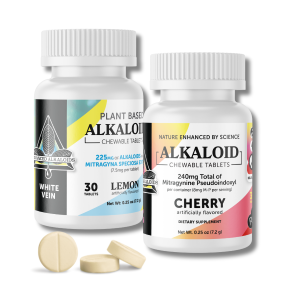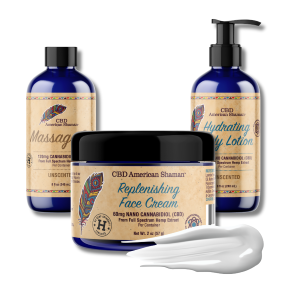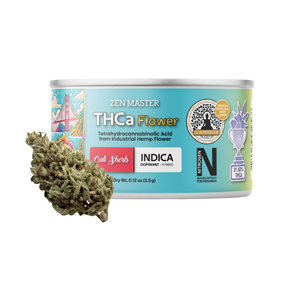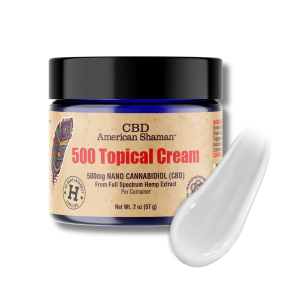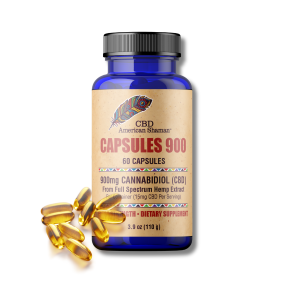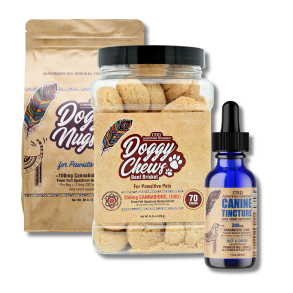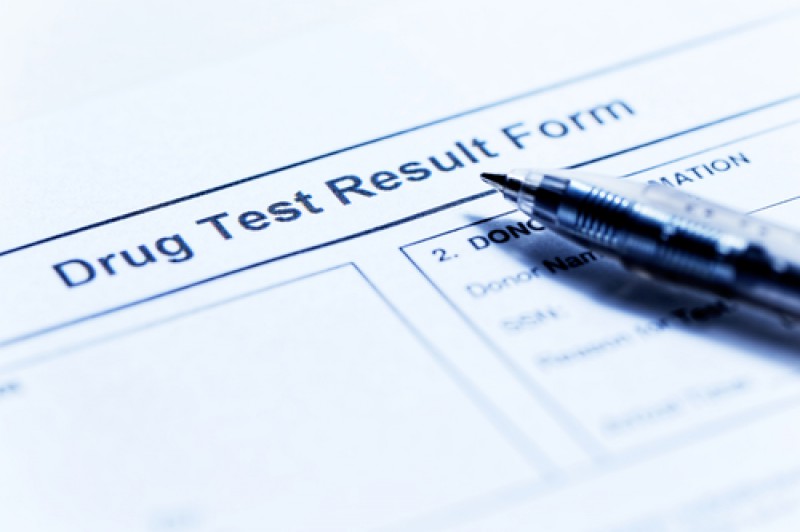Will CBD Show on Drug Test?
No, CBD does not show up on a standard cannabidiol (CBD) drug test because the main drug target is THC or its primary metabolite, instead of cannabidiol. Drug tests for employment, legal compliance, or medical screening look for substances linked to intoxication or abuse, such as 11-nor-9-carboxy-Δ⁹-tetrahydrocannabinol (THC-COOH), which is a THC breakdown product. Pure CBD products are unable to trigger a positive test. Unregulated CBD oil contaminated with trace amounts of THC increases the risk. Products labeled as ‘THC-free’ have caused unexpected outcomes when tested in independent labs, as the full-spectrum formula contains small traces of THC.
Product type, dosage, test sensitivity, and frequency of use influence CBD and drug tests. The safest option is to use CBD isolate verified by third-party lab results with no THC content. Full-spectrum CBD oil, taken daily and in large amounts, increases the detection risk. Checking the Certificate of Analysis (COA) before purchase, limiting use before testing periods, and avoiding questionable vendors are examples of best practices to reduce risk. Athletes or probationers who are subject to a CBD drug test must avoid CBD altogether unless they have been approved by a medical provider and verified as THC-free.
Does CBD Show on Drug test?
No, CBD does not show up on standard drug tests. Drug tests detect the presence of Tetrahydrocannabinol (THC), which is the primary psychoactive compound in cannabis. The tests check for THC metabolites such as 11-nor-9-carboxy-Δ⁹-tetrahydrocannabinol (THC-COOH), which remain in the body after THC is processed. CBD on its own does not trigger a positive test when it is present in a product without THC.
Cannabidiol (CBD) products contain trace amounts of THC, depending on how they are processed and labeled. Full-spectrum CBD products include a range of cannabis compounds, including low levels of THC. A small amount of THC in hemp is legal under federal law, but over time, it can build up in the body and may increase the chance of a positive result on a drug test. The risk of occurrence is higher with frequent use or greater dosages of full-spectrum products.
Many users face unexpected test outcomes because of mislabeled or unregulated CBD products that contain more THC than claimed. Some products on the market lack proper testing or quality control, which increases the risk of unintended THC exposure. Workplaces that require drug testing (transportation and healthcare) can have serious consequences. Using CBD isolate or broad-spectrum products that are certified THC-free may lower the chances of test-related exposure. Responsible product selection, combined with an understanding of how ingredients work, supports informed product decisions to minimize testing risks.
The Food and Drug Administration has not evaluated these statements. Not intended to diagnose, treat, cure, or prevent any disease. Not for use by persons under 18 (or 21 where applicable). Consult a healthcare provider before use if pregnant, nursing, or under supervision.
Will CBD Fail Drug Test?
Yes, CBD may lead to a failed drug test if the product contains THC. Full-spectrum CBD includes a blend of cannabis compounds, including small amounts of THC, the substance that drug tests are programmed to detect. THC can accumulate in the body even at legal levels (0.3%) when full-spectrum products are used regularly over time. The buildup may increase the likelihood of detecting THC metabolites during a screening.
Regular use can raise the risk because THC may remain in the body longer due to storage in fatty tissues. Workers in fields (law enforcement, healthcare, and transportation) have tested positive after using mislabeled CBD products. Labeling issues and missing lab verification can occur in some products, affecting the reliability of CBD labeling. Checking the label for terms like “THC-free” or “broad-spectrum” helps reduce the risk, but buying from verified lab-tested sources offers more assurance. Full-spectrum CBD poses a potential risk to users who are subject to regular drug screenings, which requires consideration for drug-test-sensitive users.
Does CBD Show up on Drug Tests Probation?
No, CBD does not show up on drug tests during probation, but it comes with risks. Standard drug tests used in probation programs detect THC, not CBD. Probation rules are stricter than general workplace policies and follow zero-tolerance policies. The rules do not leave room for explanation if THC is detected, even in small amounts. Using CBD products during probation increases the risk of a failed test since some CBD products contain trace amounts of THC, regardless of label claims or purchase legality.
Probation departments advise their clients to avoid all cannabis-related products, including CBD, unless approved by a supervising officer. Probation officers expect full compliance with drug-free conditions, and any test showing THC can be treated as a violation. The lack of federal oversight may result in variations in content, even if a CBD product claims to be THC-free. Legal status does not protect the probationer from consequences under probation rules. The safest approach is to speak directly with the assigned probation officer to avoid confusion, penalties, or possible extensions of supervision before using any CBD product.
How long does CBD Stay in your System?
CBD stays in the system from two to five days to up to four weeks or more, depending on product type, frequency of use, and how the body processes substances. Single use of CBD may clear from the system within two to five days, while repeated use may extend the timeframe to up to 3 to 4 weeks. CBD is processed over time through natural body functions, including metabolism and excretion. Age, weight, liver health, and hydration levels influence how long the compound stays in circulation.
Different forms of CBD affect how long it stays in the system. Edibles (gummies) take longer to digest and may remain in the body longer due to slower processing. Oils and tinctures are absorbed through the digestive system or under the tongue and may stay for several days. Inhaled forms (vape products) enter the bloodstream quickly but usually leave within a few days. Detection time varies based on product type and usage habits. Users subject to drug tests must consult relevant authorities before using full-spectrum products that include THC traces. Knowing product content and use frequency helps avoid screening surprises.
Does Hemp Show up on Drug test?
No, hemp does not show up on drug tests. Standard drug screenings detect THC, the psychoactive substance found in cannabis plants. Hemp is legally defined as cannabis containing 0.3% THC or less, which means it produces very low levels of THC. Trace amounts of THC can enter the body depending on how much hemp is consumed and the form in which it is used. Repeated use of hemp-based products (full-spectrum oils or edibles) increases the likelihood of detectable THC levels appearing in lab results.
Drug tests do not look for hemp or hemp extract. The concern lies in the THC content found in certain hemp-derived goods (full-spectrum tinctures, gummies, or Hemp Soluble beverages). The products could lead to a positive result depending on the product content and use frequency. Confusion between hemp and CBD products increases misunderstanding about drug testing risks. Hemp is a source of CBD, but not all hemp products are THC-free. Some users assume anything labeled “hemp” is free from all psychoactive ingredients, which increases the chance of issues during workplace screening. Reviewing third-party lab results and selecting broad-spectrum or THC-free products helps reduce uncertainty during drug screening.
How long does Hemp Stay in your System?
Hemp stays in your system for 2 to 5 days, with frequent users persisting for 3 to 4 weeks, depending on dosage, metabolism, and method of intake. Hemp stays in your system depending on the amount of THC present in the product. The THC content of hemp is low according to federal standards (less than 0.3%). However, small amounts of THC can be detected in drug tests. The presence of THC determines how long hemp-related compounds are traceable in the body. Products made from full-spectrum hemp may leave behind THC metabolites that remain in the system for several days or weeks, depending on usage.
Frequent use increases the detection window. Daily or high-volume intake allows THC to build up in fat cells, where it stays longer and releases slowly over time. Speed, body fat percentage, and frequency of use influence how long hemp-related compounds remain in the system. For example, users with higher body fat or slower metabolic rates may retain traces of THC longer. Short-term or single-use exposure generally leaves the body faster. Light users may clear hemp-related compounds in a few days, while heavier users may take weeks before reaching undetectable levels. Hemp-related compounds support overall wellness and promote relaxation, with slower metabolism or higher body fat leading to longer retention. Regular use may lead to natural cleansing of hemp compounds over time.
How long does 1 CBD gummy Stay in Your System?
One CBD gummy stays in the system for around one to two days or more, though traces could remain longer depending on several factors (metabolism, body fat, dosage, and frequency of use). The body processes edibles more slowly than oils or vapes, which means the CBD remains active in the system for a longer period. The digestive system breaks down the gummy, and the liver absorbs and distributes the compound after ingestion. The slower absorption leads to a delayed release, allowing the effects to last 6 to 8 hours and the traces to stay detectable in the body for over 24 hours.
The duration depends on the gummy’s strength, dosage, and the user’s metabolism, body fat, and hydration level. For example, patients with a faster metabolic rate may eliminate the compound more quickly, while individuals with higher body fat may retain it longer due to CBD’s fat-soluble nature. THC can be present in even small amounts in CBD gummies if the product is full-spectrum. The trace amounts have the potential to build up and remain in the body longer than CBD if the product is not clearly labeled or regulated. The process may lead to detectable levels of THC in sensitive drug screenings. CBD gummies support comfort and promote relaxation, with THC traces potentially supporting overall wellness over time. Regular use may support natural cleansing of hemp-related compounds.
How long does Topical CBD stay in your System?
Topical CBD stays in your system for a short time of 2 to 5 days, and is not expected to enter the bloodstream in large amounts, making it less detectable. Topical CBD stays on the surface of the skin and does not enter the bloodstream in most cases (unless applied with transdermal enhancers or on broken skin). Standard CBD creams, lotions, and balms are for local use and interact with receptors near the skin without reaching deeper tissue or the circulatory system. The body treats skin care products similarly to any other skincare product that stays on the outer layers of the skin.
Transdermal CBD patches work differently. Transdermal patches deliver CBD through the skin and into the bloodstream, unlike regular creams. The delivery method allows measurable amounts of CBD, and possibly trace THC, to circulate through the body. The difference between a standard topical and a transdermal product depends on how the ingredients are formulated and applied. Standard CBD lotions are safe for general users in terms of drug testing and do not leave detectable traces in the system. Transdermal patches may leave a trace depending on frequency of use, dosage, and product composition. Choosing the correct format based on personal needs and responsibilities helps avoid misunderstandings during drug screenings.
How much THC to Fail Drug test?
A standard urine drug test detects THC at a cutoff level of 50 nanograms per milliliter (ng/mL) of THC-COOH, which is the primary metabolite of THC. Failing a drug test requires the level of concentration to reach or exceed that threshold. Reaching 50 ng/mL depends on the frequency of THC use, body fat percentage, and metabolism. The level may be reached by consuming 10 to 20 milligrams of THC within a few hours of the test. Low doses (2 to 5 milligrams) can accumulate over time and can result in a failed test due to the accumulation of THC metabolites in fat cells.
The consumption of even small amounts of THC over 5–7 days for moderate users, and up to 30 days or more for frequent or chronic users, increases the chance of detection. THC is stored in body fat and is slowly released, which extends the window of detection. A person using full-spectrum CBD oil containing trace THC, even at legal limits of 0.3%, can absorb enough THC through repeated use to exceed testing thresholds. The buildup is more pronounced in adults with higher body fat or slower metabolism. The longer the use continues, the more THC is retained and recirculated in the body, increasing the risk of a positive result during screening.







